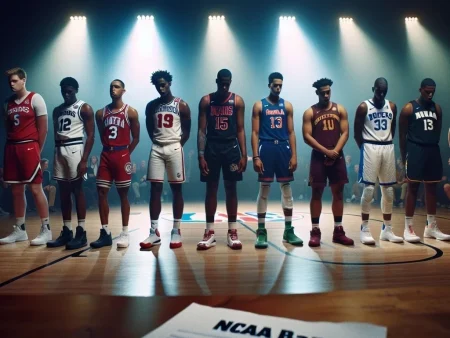Discover how a centuries-old legal loophole is shaking up the sports betting scene in D.C. Could this ancient law change the game for modern sportsbooks?
Legal Loophole Challenges Sportsbooks in D.C.
Wellcome Offer:
200% up to $2,000
+ 100 Free Spins
The winnings from your free spins will be credited as bonus funds. Exclusively available for new players with fair wagering requirements.
Wellcome Offer:
250% Bonus up to $5,000
+ 100 Free Spins
Claim your bonus and spin your way to big wins! Minimum deposit of $20 required. Wagering requirements apply. Bonus valid for 30 days.
Get up to:
100% up to $1,000
+ 300 Free Spins
You need to deposit at least $25 to be eligible for this bonus. The maximum amount of money you can withdraw from this bonus is limited to $20,000 or 10-times.
Welcome Package:
500% up to $5,000
+ 250% on your 2nd and 3rd deposits
This welcome package rewards new players across their first three deposits. A minimum deposit of $25 applies, with a wagering requirement of 60x before withdrawals.
Wellcome Offer:
250% up to $1,500
+ 100 free spins
Whether you prefer generous deposit bonuses or a bundle of free spins, Cafe Casino’s welcome offer has everything you need to enhance your gaming adventure.
Wellcome Offer:
500% bonus up to $7,500
+ 150 free spins
If you're after big deposit bonuses or a load of free spins, Ducky Luck Casino’s welcome package sets the stage for an exciting gaming adventure.
Welcome Offer:
200% up to $2,000
+ 100 Free Spins
This welcome package combines a deposit match with free spins, giving new players a powerful way to kick off their VoltageBet journey.
Wellcome Offer:
200% up to $1,000
+ 30 free spins
Lovers of slot games and those looking to boost their deposit will find Slots LV Casino’s welcome offer the perfect way to jumpstart their gaming journey.
Wellcome Offer:
200% up to $500
+ Free Spins
Terms typically include standard wagering requirements and a limited validity period. Offers vary by deposit method and player eligibility.
Wellcome Offer:
250% up to $1,500
+ 50 Free Spins
All winnings from free spins are credited as bonus funds, with fair wagering requirements. Exclusive to new players.
The world of sports betting is no stranger to intrigue and unexpected twists. Recently‚ this world has been stirred by a legal loophole involving a 300-year-old law that is being used to challenge the operations of sportsbooks in the District of Columbia.
The Background of Gambling Legislation in D.C.
In recent years‚ the gaming industry has seen significant changes in regulatory frameworks‚ particularly in the United States. The District of Columbia has been no exception‚ with its own set of gambling legislation that has allowed for the operation of sportsbooks. However‚ this regulatory landscape has now been thrown into potential disarray by a business entity leveraging an obscure historical statute.
The Legal Dispute
The crux of the legal dispute lies in the invocation of an ancient law that predates modern gambling codes. This law is being wielded by a mysterious LLC that seeks to exploit its provisions to challenge the legality of current betting operations in the district.
Modern Application and Judicial Review
While the historical statute in question is centuries old‚ its potential modern application has raised questions about its relevance and enforceability today. The courts are now tasked with conducting a judicial review to assess whether this law can indeed impact the current regulatory framework governing sports betting.
Corporate Strategy and Commercial Interests
The move by the LLC is not just a legal maneuver but also a shrewd corporate strategy. By challenging the sportsbooks‚ the entity aims to realign the commercial interests within the gaming industry in its favor. This strategic use of a legal precedent highlights the dynamic interplay between law and business.

Implications for the Gaming Industry
Should the courts uphold the use of the historical statute‚ it could set a significant legal precedent‚ potentially reshaping the landscape of sports betting not only in the District of Columbia but also in other jurisdictions. Such a development could prompt a reevaluation of existing gambling laws and inspire similar challenges elsewhere.
As this case unfolds‚ it serves as a reminder of the complexities and evolving nature of gambling legislation. The intersection of ancient laws and modern business practices underscores the importance of understanding the historical context and current legal frameworks guiding the gaming industry today. How the courts will balance these factors remains to be seen‚ but the outcome is sure to have lasting implications for all involved parties.

























